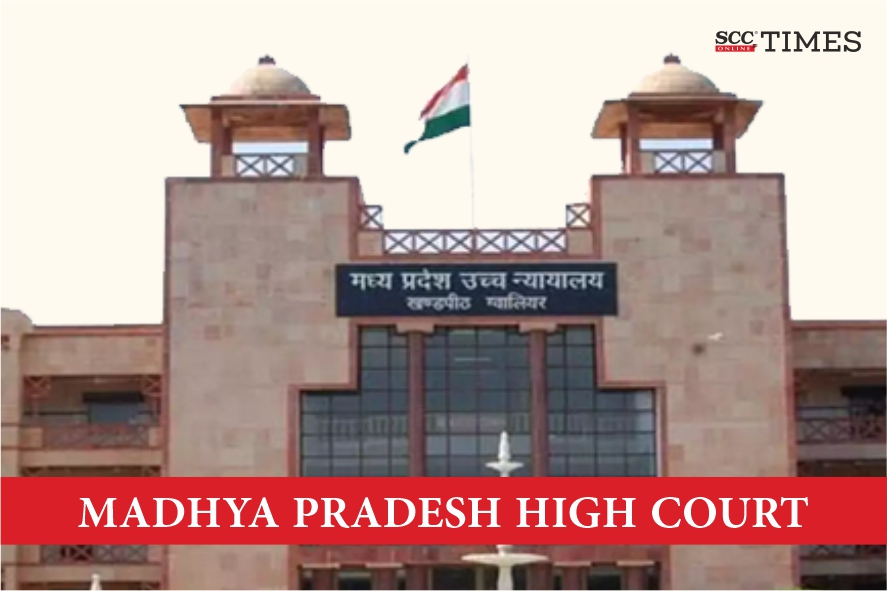Madhya Pradesh High Court: In a writ petition seeking directions to halt the recovery proceedings initiated against petitioner’s mortgaged property, a Division bench of Vivek Rusia* and Prem Narayan Singh, JJ., held that recovery proceedings under the SARFAESI Act, 2002, will continue, and no moratorium can be claimed under IBC as sole proprietorship firms cannot seek relief under Section 94 of the Insolvency and Bankruptcy Code, 2016 (IBC).
In the instant matter, the property in question was mortgaged as collateral security for loans taken by M/s Rainbow Sales and M/s Kothari Enterprises, which are sole proprietorship firms. The firms availed financial facilities from Axis Bank, including an SBB overdraft facility amounting to ₹23,00,000/- and ₹49,10,680/-. On 30-08-2023, Axis Bank classified the accounts as Non-Performing Assets (NPA) and initiated recovery proceedings under Section 14 of the SARFAESI Act.
The Additional Collector passed an order dated 28-06-2024 and directed the Tehsildar of Ratlam to take possession of the mortgaged property. In response, the petitioner filed an application under Section 94 of IBC, before the National Company Law Tribunal (NCLT), Indore, and later approached the High Court to stay the recovery proceedings pending the insolvency process.
The petitioner argued that under Section 96(1)(b)(i) of IBC an interim moratorium comes into effect as soon as an application under Section 94 of IBC is filed. It was contended that no legal action or proceeding in respect of any debt can continue during the interim moratorium period. The petitioner argued that “debtor” under Section 3(8) of IBC should be interpreted to include individuals, sole proprietorships, and partnerships, making his insolvency application maintainable.
The Court rejected the petitioner’s argument that a sole proprietorship firm is covered under the definition of a “debtor” for the purposes of an insolvency resolution under Section 94 of IBC. The Court noted that Section 3(8) of IBC defines a “corporate debtor” as a corporate person who owes a debt to any person and Section 3(7) of IBC defines a “corporate person” as, a company under the Companies Act, 2013, a Limited Liability Partnership (LLP) under the LLP Act, 2008 and any other person incorporated with limited liability but sole proprietorships are not included in this definition.
The Court held that Section 94 of IBC is not applicable to sole proprietorships. The Court held that since M/s Rainbow Sales and M/s Kothari Enterprises are sole proprietorship firms, Section 94 of IBC does not apply to them and therefore, the NCLT proceedings initiated by the petitioner had no bearing on the SARFAESI recovery proceedings.
The Court held that the Additional Collector had already passed an order, and the Tehsildar was acting in compliance, leaving no scope for further adjudication at this stage. The Court dismissed the writ petition as being misconceived.
[Ramesh Kothari v. State of M.P., 2025 SCC OnLine MP 2849, Decided on 03-03-2025]
*Judgment by Justice Vivek Rusia
Advocates who appeared in this case :
Shri Amit Agrawal, Senior Advocate with Shri Utkarsh Joshi, Counsel for the Petitioner
Shri Bhuwan Gautam, Govt. Advocate, Counsel for the Respondent/State






